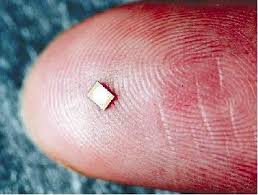Dhaka sends list, asks Delhi to remove non-tariff barriers
Bangladesh has sent a list of non-tariff barriers to India with a request to remove the same immediately for the sake of unhindered access of its goods to the Indian market. But the former avoided the issue of para-tariff barriers, official sources said.
The Ministry of Foreign Affairs (MoFA) has recently sent the list to the Indian High Commission in Dhaka for immediate consideration. The government has taken the move in line with Indian Prime Minister Dr. Monmohon Singh's promise to address the issue of trade barriers to facilitate increase in imports of Bangladesh goods to the markets of his country.
The commitment was given in the joint communiqué, signed between Dr. Singh and Bangladesh Prime Minister Sheikh Hasina in January last. The list of non-tariff barriers was prepared by the Ministry of Commerce (MoC) in response to a request made by the MoFA, it is learnt. However, the MoFA list has ignored the issue of para-tariff barriers that the exporters have long been facing while sending their goods to India, sources alleged.
Officials in the MoC said the central government of India has nothing to do with the issue of para-tariff barriers that are imposed by the state-governments. According to the list of non-tariff barriers put up by India to discourage imports from Bangladesh goods, Indian customs authority asks for laboratory tests for each and every consignment of food products, cosmetics, and leather and textile products. Getting laboratory reports normally takes 15-20 days as the samples are sent to the laboratories, located far from the land customs stations, through normal mail, which delays the clearance of consignments.
Original SAPTA certificate issued by the Bangladesh Export Promotion Bureau is largely ignored by Indian customs. Indian customs people ask both the exporters and importers to submit details of rules of origin calculation along with the documents, ignoring the set criteria of the regional agreement, said the list. Sanitary import permit has been made mandatory for Indian importers of processed food, toiletries and cosmetics from Bangladesh.
Packaging requirement has been made mandatory by Indian customs authority for food items with maximum retail price, standard unit, month and year of packaging inscribed on the packets. All pre-packaged commodities like processed foods, cosmetics, toiletries, spices imported in India requires generic and common name of the commodity packed, net quantity in terms of standard unit of weights and measures.
Besides, non-tariff barrier like inordinate delay in clearance of Bangladeshi goods from customs for various reasons, including non-availability of their designated officers and certificates from departments concerned of the Indian government causes problems for Bangladeshi exporters. Furthermore, inadequate physical facilities like warehousing, transshipment yard, parking yard and connecting roads at land customs stations of India also hinder exports from Bangladesh, the list elaborated.
The Indian authorities do not allow trucks of Nepal to go into Bangladesh territory through Banglabandha land customs that causes extra expenses for Bangladeshi importers and exporters. At Banglabandha point at Phulbari, Nepalese trucks are allowed to come up to zero point and unloading/loading takes place there. The Bangladesh customs and ministry of commerce have long been requesting the Indian authorities to allow Nepalese trucks to come 200 metres inside Bangladesh from the zero point.
The joint communiqué signed between Sheikh Hasina and Monmohon Singh clearly mentioned to permit Nepalese truck to enter into Bangladesh territory. The two-way trade balance was $968.71 million in favour of India in the 2001-02 fiscal year, when Bangladesh exported goods worth $50.19 million to India against her imports of $1.01 billion. The gap increased to above $3.0 billion in 2008-2009.
A high official in the MoC said exports from Bangladesh to India would be at least two-fold if non-tariff barriers are removed."Our export to Indian markets has long been hampered due to all these barriers", a high official in the MoC told FE."Things are likely to improve soon", he said
According to a list of Federation of Bangladesh Chambers of Commerce and Industry, the exports face numerous para-tariff barriers in Indian markets that hamper the country's export potential badly. The exporters concerned are subjected to pay Rs. 3000 as laboratory test fee for each type of food items.
The Indian authorities have recently imposed 18 per cent tax and value added tax as central value added tax, Special Central Vat and Education Tax on apparels of Bangladesh origin defying the SAFTA agreement. Under the SAFTA list of sensitive goods, India is supposed to provide duty-free access to 8.0 million pieces of apparels originating from Bangladesh from 2008.
Indian government has recently imposed 18 per cent extra duty on cement imports from Bangladesh, affecting cement exports to India's North Eastern region.
http://fe-bd.com/more.php?news_id=97479&date=2010-04-12
__._,_.___


